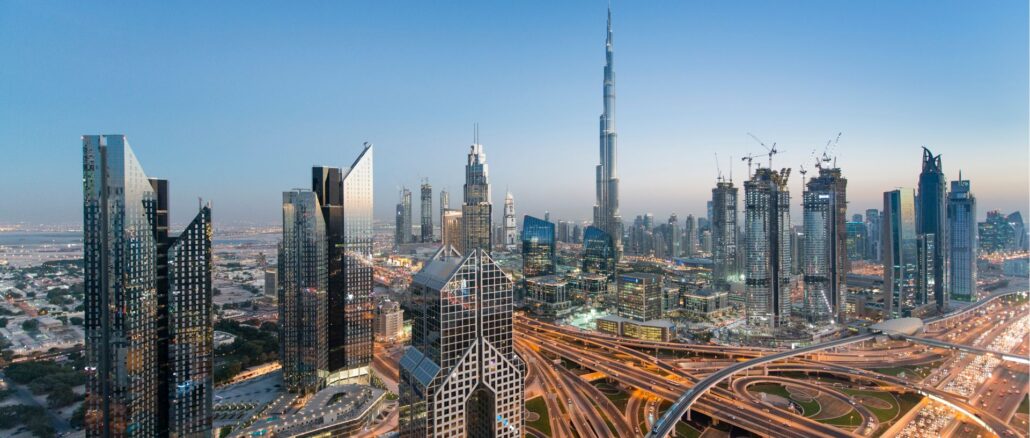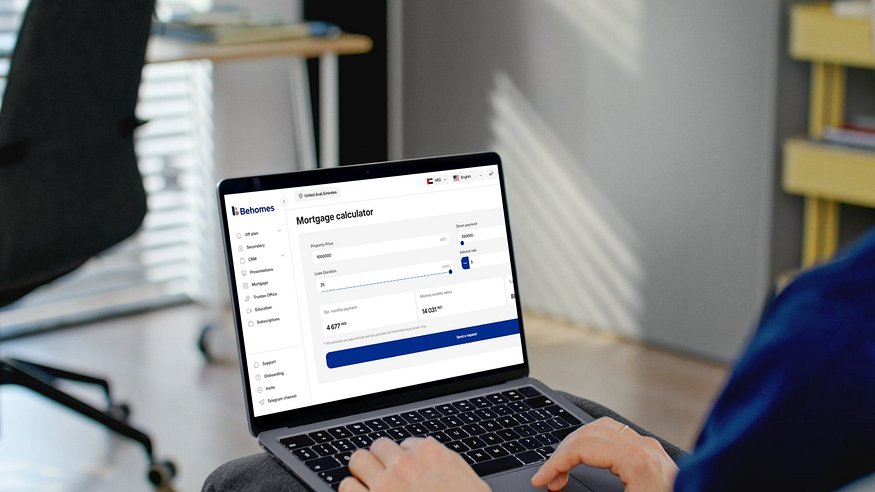Cheaper Homes Coming? U.S. & UAE Rate Cuts and Dubai’s Mortgage Shift

Homeownership in the UAE may soon become noticeably more affordable. The U.S. Federal Reserve is widely expected to deliver a 25-basis-point rate cut, and the UAE Central Bank is set to mirror the move almost instantly. With the dirham pegged to the U.S. dollar, the UAE’s monetary policy shifts in lockstep with the Fed.
Economists say the immediate effect will be cheaper mortgages across the Emirates — potentially reshaping the property market.
What This Means for Buyers
- Lower monthly payments. Falling rates ease the financial burden on households taking out new loans.
- Higher borrowing power. A buyer who previously qualified for a AED 1 million mortgage may now access closer to AED 1.2 million.
- Rent vs. buy rethink. With rents in Dubai and Abu Dhabi climbing, mortgage payments could now undercut monthly rents, tipping the scales toward ownership.
Who Stands to Gain Most
- First-time buyers. Lower rates may finally open the door to the property ladder.
- Renters. Tenants squeezed by surging rents could see buying as a smarter option.
- Existing homeowners. Borrowers with expiring fixed-rate deals can refinance at cheaper rates.
- Investors. Lower financing costs boost returns, encouraging portfolio expansion.
Market Impact and Evidence
Analysts expect demand to rise, especially in mid- and entry-level segments such as studios, one- and two-bedroom apartments, and townhouses. Developers are set to benefit, while banks may compete harder with lower fees and better mortgage packages. Still, cheaper mortgages usually fuel transaction growth rather than price drops — and if demand spikes, prices could climb further, offsetting some of the savings.
Knight Frank data underscores the market’s resilience:
- Transactions. Nearly 170,000 residential sales in 2024 worth US$100 billion; total real estate deals hit US$207 billion, with 435 luxury deals above US$10 million — the most worldwide.
- Price growth. Average prices rose 19.1% last year (villas +20.2%, apartments +18.9%).
- Supply. Around 261,000 units under construction by mid-2024, 80% apartments, yet demand still outpaces supply.
- Mortgages. While luxury remains cash-heavy, mainstream demand increasingly relies on financing. With fixed rates at 3.9–5.0%, even small cuts could expand affordability for middle-income households.
Innovation and Market Response
Mortgage financing has become one of the fastest-growing segments of Dubai’s property market. With borrowing costs falling and demand rising, banks are launching new products while PropTech solutions streamline the process.
“And what we are seeing now is a real shift in how the industry operates,” says Andrey Sviridenko, CEO of Behomes. “Dubai was once thought of as a cash-driven market. Today, mortgages are increasingly accessible and attractive. Agents and brokers want tools that give them speed, transparency, and confidence — and that’s exactly what we provide.”
According to Sviridenko, Behomes has built a professional platform tailored for real estate agents and brokers. It enables them to compare mortgage offers from 17 leading UAE banks in real time, use mortgage calculators to model repayment structures, and understand the true cost of borrowing beyond the headline rate.

“It’s not just about the interest rate on paper,” he explains. “It’s about fees, loan terms, fixed versus variable rates — and how those factors affect clients over time. That’s where our technology makes the difference.”
He adds that the company is developing a mobile app to make securing a mortgage faster and easier than ever, guiding users through required documents and simplifying every step of the process. “The next stage of innovation in the UAE mortgage space is about giving buyers speed, clarity, and confidence-making home financing as straightforward as possible.”
The Bigger Picture
The upcoming rate cut marks a pivotal moment. With strong population growth, rising rents, and robust investor interest already fueling the UAE real estate sector, lower interest rates could accelerate the shift from renting to owning.
For many expats and residents, 2025 may finally be the year when buying a home in Dubai or Abu Dhabi makes more sense than renting.
Originally published at Business News This Week